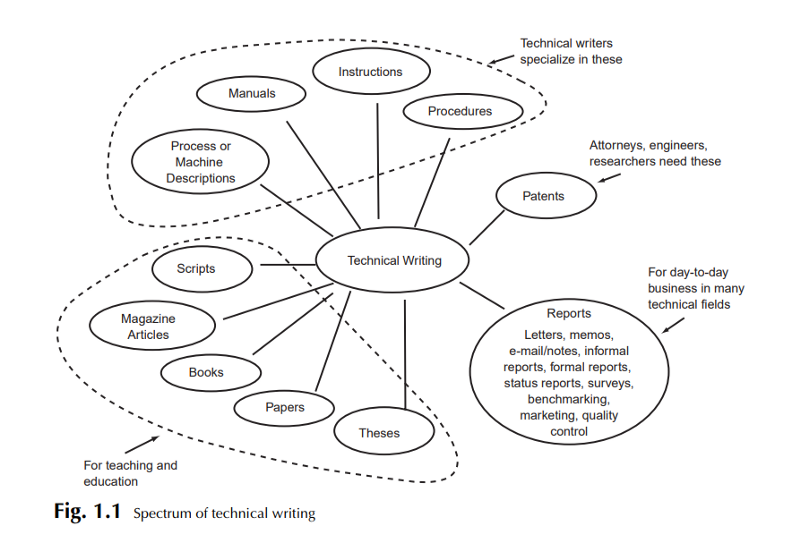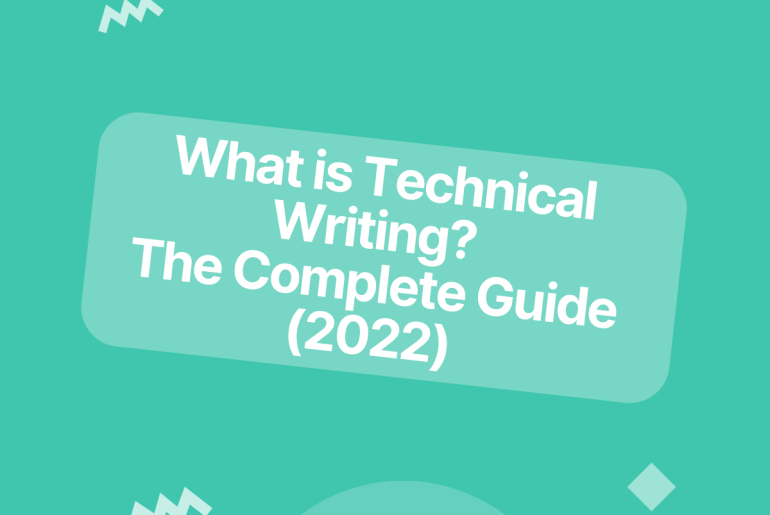With an average of $78k annually, technical writing is definitely a term you need to look into in 2022.
Technical Writers are paid an average annual salary of $78,060 according to the U.S. BUREAU OF LABOR STATISTICS.
The term is attributed to those who create content explaining a particular technology and /or its usage.
If you love writing and technology, you’re on the right track to becoming a technical writer.
This article is part of our Technical Writing Series, you can read the previous series before you jump to this one.
- What is Technical Writing?: We explored technical writing in-depth and get you started creating your first technical content.
- Who is a Technical Writer?: We explore who a technical writer is, the different types of technical writers, and the different skillset required to become a technical writer.
- Types of Technical Writing: We broke down technical writing into 3 broad types and discuss in detail these different types and how to choose a specific category.
- Technical Writing Niches: We explored the different technical writing niches or types of technical content you can specialize in as a technical writer and produce.
- The Technical Writing Process: We will explore the lean technical writing process that will help you create high-quality technical content consistently.
- How to Become a Good Technical Writer? We discussed the factors you need to make you stand out and become a good technical writer.
In this series, we will explore technical writing in-depth and get you started creating your first content through our Technical Writing Series.
What is Technical Writing?
Technical writing is a form of writing that translates complex technical topics into easily digestible and understandable content.
It covers a pattern of writing where the writer writes on a particular subject that requires breaking down the complex part of the subject to its simplest form by giving direction, instruction, or explanation about that particular subject matter.
Technical writing comes with a different style, it carries a different purpose and involves different characteristics that are different from other writing styles such as creative writing, freelance writing, business writing, or academic writing.
Some examples are discussed here in this series.

Technical writing is a very detail-oriented writing field where advanced knowledge is required.
Types of Technical Writing
It is categorized into these 3 broad categories or its assignments normally take one of three forms:
- End-user documentation
- Traditional technical writing
- Technical marketing communications
End-user Documentation
The End-user documentation also known as customer-oriented documentation provides instructions for the end-user of a given product. This type lays the instructions in such a way that it is easier to understand by non-technical users.
Traditional technical Writing
Traditional technical writing is a concept where content is written by an audience with specific expertise for their peers.
It is also called Expert to expert tech documentation or freelance technical writing.
In technical writing, companies contract freelance technical writers with a certain expert level in technologies or proven knowledge to write detailed content for companies.
Technical marketing communications
These technical writers contribute to the marketing materials of a product or company at large. They need to communicate their expertise in a more user-friendly language to help the prospective buyer understand and take an interest in the product.
Here is a detailed guide on the different types and how to choose the best one.
Benefits of Technical Writing
The benefit of technical writing is enormous and cannot be over-emphasized, also it benefits both companies and technical writers in different ways and we are going to explore each of them.
Companies
The benefits are massive for companies if done right. Listed below are the common benefits companies can derive.
Educate your end-users
In this digital and information age, educating your end-users should be the most priority of companies as it builds trust among users.
According to the book “They Ask You Answer by Marcus Sheridan”, When you educate your users, your users trust you and they buy from you and also refer their friends.
Therefore, investing in your user’s education through this form of writing is a win-win game for your company.
Keep customers informed and satisfied
It reduces your support drastically from repeated questions concerning a particular task in your product. By creating content around those questions, your support volume will reduce drastically.
With enough content that answers different technical questions of your customers, the more they are well informed and satisfied.
To individuals
As a technical writer, you can benefit in several ways too, and below is a list of common ways you can benefit as a technical writer.
- It improves your communication skills. It demonstrates how inflated one’s own image of communication skills is. This leads to self-improvement if we decide to improve our communication game.
- It is a writing niche with high demand and high pay as well especially if you know how to do any structural authoring or API documentation.
- Also, it teaches you how to be a keen observer of events and actions and how to pay attention to details. Attention to detail is an important soft skill and technical writing helps you to improve it.
- Additionally, it helps you organize your thoughts clearly and also improves your articulations. You quickly get into the habit of making lists and constructing tree-view diagrams while writing. This skill to organize information improves all other parts of one’s life and helps us live more productive lives.
- Furthermore, it helps you to understand technology better and thus increases your capacity to adapt to new waves of technologies.
- As a software engineer and a technical writer, you can easily transit to different career paths such as Developer Advocacy, Staff Technical Writer, Technical Content Manager, etc.
The benefits to companies and individuals are enormous and come with a sense of fulfillment for both parties.
In the next article series, We will explore who technical writers are and what they do in their day-to-day.
Click here to read the next series on Who is a Technical Writer?
Contentre helps technical writers stay organized and gain more clients. Grow your technical writing career in one place.
Now that you’re here, let me briefly recap the most important features Contentre can offer you:
- Organize your content in categories, topics, and tags
- Create and manage multiple clients
- Create and manage multiple personalized portfolios
- Get statistical analytics of your content revenue, top categories, and tags.








28 Comments
Pingback: Who is a Technical Writer? How to become one (2022) - Contentre Blog
Pingback: Secrets of a freelance technical writer with John - Contentre Blog
Pingback: Secrets of the freelance technical writers with Success - Contentre Blog
Pingback: What is Freelance Writing? The Ultimate Guide (2022) - Contentre Blog
Pingback: Top 14 Profitable Technical Writing Niches (2022): Choosing one - Contentre Blog
Pingback: The Technical Writing Process: How to Produce steady high-quality content (2022) - Contentre Blog
Pingback: How to Become a Good Technical Writer? - Contentre Blog
Pingback: Types of Technical Writing: How to Choose? (2022) - Contentre Blog
Pingback: BTS 5: From Struggling Developer to Technical Writing Wiz - Contentre Blog
Pingback: BTS 6: Ultimate Guide To Dumping Code For Technical Writing - Contentre Blog
Pingback: Top 5 Technical Writing Resources: How to Hone your Technical Writing Skills (2022) - Contentre Blog
Pingback: BTS 7: My technical writing journey from $2 to $200 - Contentre Blog
Pingback: How to Scaling Your Technical Writing Career - Contentre Blog
Pingback: What Is Technical Writing? The Complete Guide (2022) – Writers World
Pingback: BTS 7: Technical Writing Tips from 17 years of Experience - Contentre Blog
Pingback: Technical Tutorials: How to Write Good Technical Tutorials (2022) - Contentre Blog
Pingback: BTS 9: My technical writing journey from $15 to $800 - Contentre Blog
Pingback: BTS 11: How I bagged $400 deals from my technical writing side hustle - Contentre Blog
Pingback: [Webinar] BTS 11: How I bagged $400 deals from my technical writing side hustle - Contentre Blog
Pingback: BTS 13: Hidden Tips from 16 years of Technical Writing - Contentre Blog
Pingback: How to Write Good API Reference Guides - Contentre Blog
Pingback: BTS 13: From Veteran to 20-year Rich Technical Writing Career - Contentre Blog
Pingback: BTS 18: A freelance writer turns Web3 technical writer - Contentre Blog
Pingback: How to Write Process Documentation - Contentre Blog
Pingback: Average Technical Writer Salary - Contentre Blog
Pingback: Comprehensive Guide to Technical Writing Principles - Contentre Blog
Pingback: Top 11 Types Of Technical Writing - Contentre Blog
Pingback: Getting Better At Technical Writing 1: The Beauty of Consistency - Contentre Blog